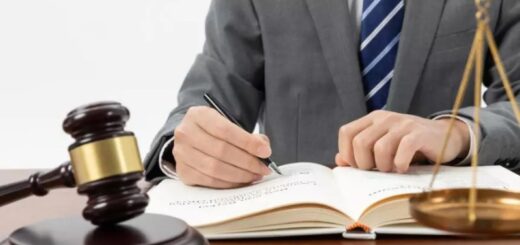Car Accident Lawsuit NJ: Seeking Compensation After a Road Mishap

Car accidents can be distressing events that lead to physical injuries, emotional trauma, and financial setbacks. If you’ve been involved in a car accident in New Jersey (NJ), you might be wondering about your rights and options for seeking compensation. Filing a car accident lawsuit in NJ involves a series of legal procedures that can be complex and overwhelming. In this article, we will provide you with a detailed overview of the steps to take when pursuing a car accident lawsuit in NJ, along with answers to common questions and expert insights.
Car Accident Lawsuit NJ: A Step-by-Step Guide
Understanding Car Accident Laws in New Jersey
In the aftermath of a car accident, it’s crucial to understand the legal framework that governs such cases in NJ. The state follows a no-fault insurance system, which means that your own insurance company covers your medical expenses and damages regardless of who caused the accident. However, you can step outside this system and file a lawsuit under specific circumstances.
Determining Liability: Key to Your Case
Proving liability is central to a successful car accident lawsuit. To establish liability, you need to demonstrate that the other party was negligent and that their negligence directly caused the accident. This involves gathering evidence such as accident reports, eyewitness testimonies, and expert opinions.
Initiating the Lawsuit: Filing the Complaint
To start the legal process, your attorney will file a complaint with the appropriate court. The complaint outlines the details of the accident, the injuries sustained, and the damages you’re seeking. This step officially commences your lawsuit.
Pre-trial Negotiations and Settlement Attempts
Before heading to court, both parties often engage in settlement negotiations. This can lead to a quicker resolution and save you time and money. Your attorney will work to negotiate a fair settlement that covers your medical expenses, property damage, lost wages, and pain and suffering.
Discovery Phase: Unearthing Crucial Evidence
During the discovery phase, both sides exchange relevant information and evidence. This can include medical records, accident reports, and expert witness statements. Discovery helps build a stronger case and allows each party to understand the other’s evidence.
Mediation and Alternative Dispute Resolution
Mediation offers an alternative to trial by involving a neutral third party who facilitates negotiations between you and the defendant. It’s a less formal process that can lead to a mutually agreeable settlement.
Trial: Pursuing Justice in Court
If a settlement isn’t reached, your case will proceed to trial. Your attorney will present your evidence and arguments, aiming to convince the judge and jury of the defendant’s negligence and your entitlement to compensation. Trials can be lengthy and emotionally draining, but they offer a chance for you to obtain a favorable verdict.
Verdict and Potential Appeals
Once the trial concludes, the judge or jury will deliver a verdict. If you win, the defendant may choose to appeal the decision. Appeals can prolong the legal process, but with a strong case and skilled legal representation, you can still secure the compensation you deserve.
Enforcement of Judgement: Obtaining Your Compensation
If you’re awarded compensation, the defendant is legally obligated to pay. However, if they fail to do so voluntarily, your attorney can take legal steps to enforce the judgement and ensure you receive the rightful amount.
Expert Insights: Navigating the Legal Maze
In car accident lawsuits, having expert legal guidance is invaluable. According to LegalExperts.com, “Working with an experienced car accident attorney who understands the intricacies of NJ law can significantly enhance your chances of success. They can guide you through the legal process, handle negotiations, and ensure you receive fair compensation for your damages.”
Car Accident Lawsuit NJ FAQs
Can I File a Lawsuit if I’m Partly at Fault for the Accident?
Yes, New Jersey follows a modified comparative negligence rule. You can still pursue a lawsuit, but your compensation will be reduced by the percentage of fault attributed to you.
How Long Do I Have to File a Lawsuit After an Accident?
In NJ, the statute of limitations for filing a car accident lawsuit is generally two years from the date of the accident. It’s essential to act promptly to preserve your legal rights.
Do All Car Accident Lawsuits Go to Trial?
No, many cases are resolved through settlements before trial. Trials are pursued when negotiations fail or when liability and compensation cannot be agreed upon.
What Damages Can I Seek in a Car Accident Lawsuit?
You can seek compensation for various damages, including medical expenses, property damage, lost wages, pain and suffering, and emotional distress.
How Much Does It Cost to Hire a Car Accident Attorney?
Most car accident attorneys work on a contingency fee basis, meaning they only get paid if you win your case. Typically, they receive a percentage of your awarded compensation.
Can I Still Pursue Compensation If the At-Fault Driver Doesn’t Have Insurance?
Yes, uninsured/underinsured motorist coverage is mandatory in NJ. This coverage can help you seek compensation from your insurance company if the at-fault driver is uninsured or lacks sufficient coverage.
Conclusion
Experiencing a car accident in NJ can be overwhelming, but understanding the legal steps to take can empower you to seek the compensation you deserve. From understanding the legal framework and gathering evidence to navigating negotiations and potential trials, the journey can be complex. By enlisting the guidance of an experienced car accident attorney, you can navigate the legal maze and increase your chances of obtaining a favorable outcome.










